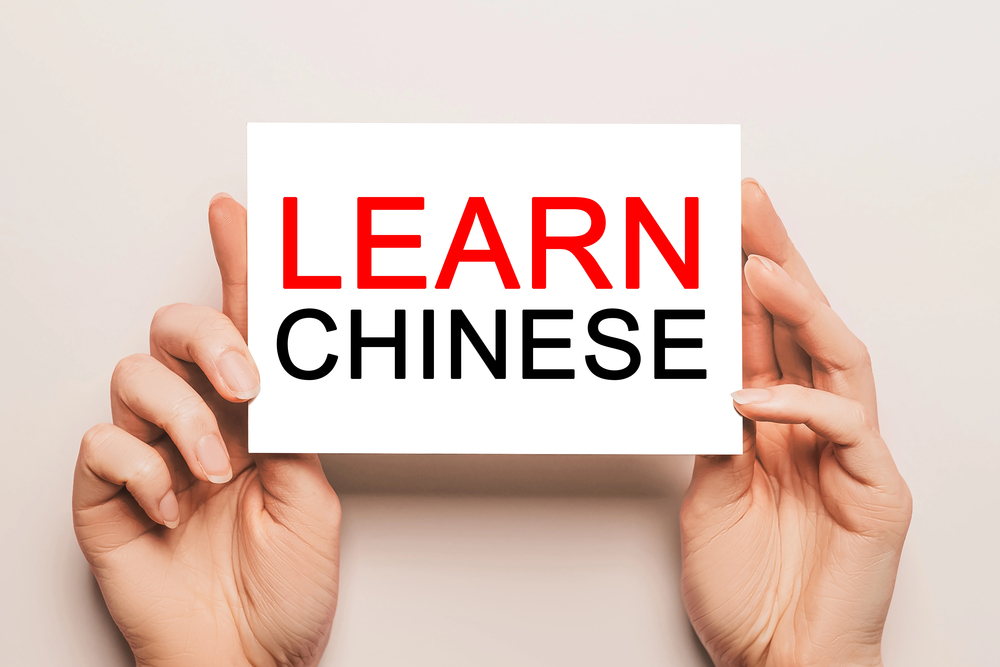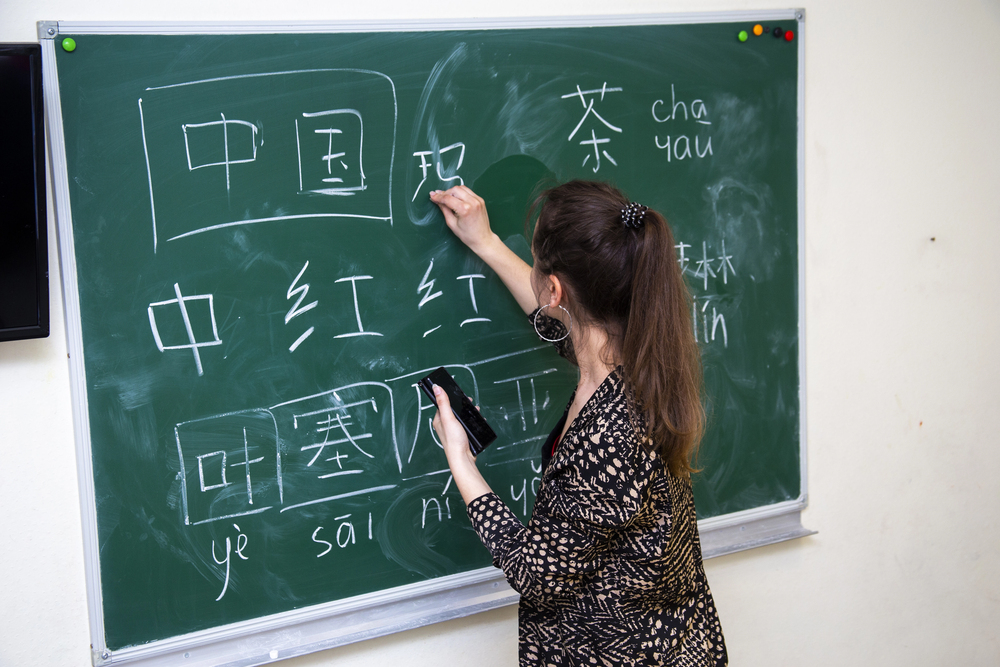Moving to Shenzhen is exciting. However, when you do not speak Chinese, it can be frightening. The good news? You do not need to be fluent. You just need a few useful Chinese phrases for expats to get by.
This guide gives you the most essential Survival Chinese phrases for expats. These are phrases in reality that you will use on a day-to-day basis. You will find what you need whether you are ordering food, asking for directions, or discussing with coworkers.
Let’s start simple. Let’s start now.
Why Chinese for Beginners Matters
You may believe that you should speak fluent Chinese. You don’t.
When the expats attempt to speak their language, local people like it. Even simple words help. They show respect. They open doors. They make life easier.
This is the reason why useful Chinese phrases for expats matter:
- It assists you in surviving: You can eat, move, and demand assistance.
- It develops friendships: People get fond of you when you speak their language.
- It saves money: Shopkeepers offer you better prices when you want to try Chinese.
- It makes you feel more confident: You are not so lost and afraid.
The best part? Chinese for beginners is not as difficult as it seems. Chinese does not have complex verb tenses like English or French. You just put words together. Simple.

Essential Greetings: Learn to Speak Right Now
Any discussion in Shenzhen begins in the same manner. You must know how to greet someone, say thank you, and welcome. These three words will carry you everywhere. Let’s learn them right now.
Basic Polite Words and Greetings
In China, everyone loves to be polite. The following simple words will assist you daily:
- Nǐ hǎo (你好): Hello
- Xièxie (谢谢): Thank you
- Búkèqi (不客气): You’re welcome
- Duìbùqǐ (对不起): I’m sorry
- Qǐng (请): Please
- Zàijiàn (再见): Goodbye
These six words are your building block. You can survive in China knowing just these six. Say them with a smile, and people will want to help you.
Chinese for Beginners – Easy Numbers You Need to Know
Numbers are super important. You need them for money, addresses, and taxi directions. Here are the numbers 1 to 10:
- 1 = Yī (一)
- 2 = Èr (二)
- 3 = Sān (三)
- 4 = Sì (四)
- 5 = Wǔ (五)
- 6 = Liù (六)
- 7 = Qī (七)
- 8 = Bā (八)
- 9 = Jiǔ (九)
- 10 = Shí (十)
Pro tip: The number 4 (sì) is similar to the word death, so most buildings go without the fourth floor. It is not surprising to see a building with floors 3 to 5. This is just Chinese culture!
Other Useful Greetings to Know
- 早! (Zǎo): Good morning (say this every morning)
- 再见 (Zàijiàn): Goodbye
- 晚安 (Wǎn’ān): Good night
- 你好吗?(Nǐ hǎo ma?): How are you?
These are to be practiced until they become natural. Say them out loud. Your Chinese friends will like it.
Simple Pronouns to Start Your Chinese for Beginners Journey
It is important to know who you are conversing with. Here are the basic pronouns:
- Wǒ (我): I or me
- Nǐ (你): You
- Tā (他/她/它) – He, she, or it (they all sound the same!)
That’s it! Most of the conversation you will have in learning Chinese phrases that are useful to expats will be covered by these three pronouns.
Survive Daily Life in China
Sometimes you could not understand what people said. Sometimes, you may need someone to assist you with something. The following Chinese beginner’s phrases will assist you in seeking help and speaking when you are in confusion.
How to Ask Questions When You Don’t Understand
- Nǐ shuō yīngwén ma? (你说英文吗?): Do you speak English?
- Wǒ bù tīng dǒng (我不听懂): I don’t understand
- Qǐng màn yi diǎn shuō (请慢一点说): Speak slowly, please.
- Zhè shì shénme? (这是什么?): What is this?
- Nǐ néng bāngzhù wǒ ma? (你能帮助我吗?): Can you help me?
These phrases are gold! Chinese people do smile when you ask them to help you, and they will do their best to help you. Don’t be shy about asking.
Useful Chinese Phrases for Expats at Restaurants
Food plays a significant role in China. The following are the phrases you will require when you are out to eat:
- Wǒ xūyào cài dān (我需要菜单): I need a menu
- Zhège là ma? (这个辣吗?)Is this spicy?
- Wǒ shì sù shí zhě (我是素食者): I am vegetarian
- Duōshao qián? (多少钱?): How much does it cost?
- Mǎi yī ge (买一个): I’ll buy one
Pro tip: In China, restaurants are loud and busy. Point to what you want if talking is too hard. It works great!

Getting Around Town – Phrases You’ll Use Every Day
Moving around your city is one of the biggest challenges for expats. These useful Chinese phrases for expats will keep you from getting lost:
- Cèsuǒ zài nǎlǐ? (厕所在哪里?): Where is the bathroom? (Use this one often!)
- Wǒ mílù le (我迷路了): I am lost
- 请问怎么去…?(Qǐng wèn zěn me qù…?): How do I get to…?
- Zuǒ zhuǎn / Yòu zhuǎn (左转/右转): Turn left / Turn right
Using Google Maps on your phone is good, but having these phrases in your pocket makes you feel more confident.

Real Problems You Will Face
Emergency Situations – Phrases That Could Help You
We hope you never need these, but it’s good to know them:
- Wǒ xūyào bāngzhù (我需要帮助): I need help
- Jiào jǐngchá (叫警察): Call the police
- Wǒ yào qù yīyuàn (我要去医院): I need to go to the hospital
- Wǒ bìng le (我病了): I am sick
Keep these phrases in your phone. You’ll probably never use them, but knowing them brings peace of mind.
Shopping at Markets
Shopping in China is fun and different from shopping in America. Here are key useful Chinese phrases for expats at markets:
- Tài guì le (太贵了):Too expensive
- Dǎ zhé ma? (打折吗?): Is there a discount?
- Wǒ xiǎng kàn.. (我想看____): I’d like to see…
- 这个多少钱?(Zhè ge duō shǎo qián?): How much is this?
- 有别的吗? (Yǒu biéde ma?): Do you have anything else?
Tip: In the outdoor markets, you are expected to negotiate the price. There is nothing to be afraid of saying it is too expensive with politeness, which is a game too!
Housing and Your New Home
It is a big step to find a place to live. These are the phrases to use when viewing apartments:
- Yǒu fángjiān ma? (有房间吗?): Do you have a room available?
- Duōshao qián yī ge yuè? (多少钱一个月?): How much per month?
- Wǐ-fǐ mìmǎ shì duōshao? (Wi-Fi密码是多少?): What’s the Wi-Fi password?
- Kōngtiáo (空调): Air conditioning
- Rè shuǐ (热水): Hot water
Why Sounds Matter in Chinese
Chinese has four tones. This means the same sound said four different ways means four other things. Like, “ma” may be translated to mean mother, hemp, horse, or to censure somebody – it all depends on the way you say it. This is why we write little marks above the letters (like mā, má, mǎ, mà). These marks show you how to say the word.
The good news? When you do something wrong, people tend to know what you intend in the circumstance. There is no need to be overly concerned about ideal tones.
Cultural Tips for Using Your New Phrases
When you speak Chinese, remember these essential things:
- Always say “qǐng” (please) when you ask for something. It shows respect.
- Use “duìbùqǐ” (I’m sorry) when you make mistakes. Chinese people really like this.
- People will teach you and help you. Be humble and thankful.
- Never refuse a gift or compliment right away – it’s not polite in Chinese culture.
- Tipping money is not normal in China, so don’t worry about that. Your thanks are enough.
Why Shenzhen Post is Perfect for Expats Like You
Shenzhen Post was created specifically for people like you. It’s not just another website. It’s made by expats who know precisely what you’re going through. When you learn useful Chinese phrases for expats from Shenzhen Post, you’re learning from people who have been in your shoes.
Shenzhen Post’s “Study & Speak” section helps you master Chinese step by step. Their Living Guide provides you with all the knowledge to survive in China. They realize that learning Chinese is difficult as a beginner, and they want you to pass.
They understand that Chinese for beginners is hard, and they want to help you succeed.
Best Apps and Tools to Practice Your Phrases
Learning doesn’t stop after you read this article. Use these great tools to keep practicing:
- HelloChinese App – Makes learning fun with games and daily lessons
- SurfShark VPN – Helps you access websites you need and protects your privacy
- Booking.com – Perfect for finding places to stay with English information
- Airalo eSIM – Get a phone number so you can call people and use translation apps
These tools work together to help you learn and stay connected. Start with HelloChinese. Practice for ten minutes every day.
Faqs
Q: Do I need to learn Chinese characters?
No. Start with Pinyin (the way Chinese sounds written in English letters). Learn to speak first. Characters come later.
Q: How long does it take to learn these phrases?
In a week, you can learn the basic ones. The better you practice, the quicker you will remember them.
Q: Is it possible to live in Shenzhen with only English?
Maybe. But useful Chinese phrases for expats make everything better.—shopping, dating, making friends, getting jobs—all easier with Chinese.
Q: Where can I practice these phrases?
Language apps like HelloChinese. Language exchange meetups. Your Chinese coworkers. Everywhere.
Conclusion
Learning useful Chinese phrases for expats doesn’t have to be hard. You don’t need to be perfect. You just need to try. Each word you memorize is a minor triumph. Whenever you speak Chinese to people, you gain confidence. Soon you will be ordering Chinese food, asking directions, and becoming friends. You will look back at the first day in China and laugh at how frightened you were.
It is easy; you just have to begin small, practice a lot, and do not be afraid to make a mistake. The Chinese around you want you to make it. They’ll help you. They’ll correct you kindly. They’ll celebrate with you.
Ready to start your Chinese journey? Head over to Shenzhen Post right now. Check out their “Study & Speak” section for more lessons. Join their community of expats who are learning just like you. Visit Shenzhen Post’s Living Guide to get connected with other resources and expats in your city. Don’t wait – your Chinese adventure starts today!

